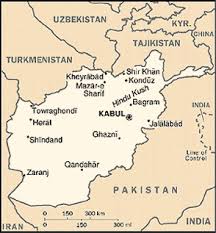 ve Republican presidents, Harding, Coolidge and Hoover. These three, in cahoots with Congress, were the original "supply siders," believing that low taxes on the rich would foster growth and prosperity through trickle down mechanisms. And so it did, for awhile, and America's economic fortunes improved along with the rest of the world following the catastrophic destruction of World War I. And also, as the low tax rates were maintained and the financial sector was allowed to run wild with unlimited margins and unsupervised stock markets, the pro-fatcat regime led to the kind of unbalanced wealth distribution not seen again until...now. Sic semper gloria mundi.
ve Republican presidents, Harding, Coolidge and Hoover. These three, in cahoots with Congress, were the original "supply siders," believing that low taxes on the rich would foster growth and prosperity through trickle down mechanisms. And so it did, for awhile, and America's economic fortunes improved along with the rest of the world following the catastrophic destruction of World War I. And also, as the low tax rates were maintained and the financial sector was allowed to run wild with unlimited margins and unsupervised stock markets, the pro-fatcat regime led to the kind of unbalanced wealth distribution not seen again until...now. Sic semper gloria mundi.February 07, 2009
American Economy and Other Entropic Processes
 ve Republican presidents, Harding, Coolidge and Hoover. These three, in cahoots with Congress, were the original "supply siders," believing that low taxes on the rich would foster growth and prosperity through trickle down mechanisms. And so it did, for awhile, and America's economic fortunes improved along with the rest of the world following the catastrophic destruction of World War I. And also, as the low tax rates were maintained and the financial sector was allowed to run wild with unlimited margins and unsupervised stock markets, the pro-fatcat regime led to the kind of unbalanced wealth distribution not seen again until...now. Sic semper gloria mundi.
ve Republican presidents, Harding, Coolidge and Hoover. These three, in cahoots with Congress, were the original "supply siders," believing that low taxes on the rich would foster growth and prosperity through trickle down mechanisms. And so it did, for awhile, and America's economic fortunes improved along with the rest of the world following the catastrophic destruction of World War I. And also, as the low tax rates were maintained and the financial sector was allowed to run wild with unlimited margins and unsupervised stock markets, the pro-fatcat regime led to the kind of unbalanced wealth distribution not seen again until...now. Sic semper gloria mundi.
Posted by
Waldenswimmer
at
8:00:00 AM
0
comments
![]()
February 06, 2009
Marco Polo In the Court of Congress

That was some riveting theater the other day before the House Subcommittee on SomethingorOther when Harry Markopolos, the avenging angel of the Re-Regulation Forces, appeared to describe to the Committee his futile efforts to get the New York office of the SEC to do something about Bernard Madoff's massive fraud scheme. For fans of Schadenfreude, it was like Weinachten in February.
Posted by
Waldenswimmer
at
8:41:00 AM
0
comments
![]()
Labels: Bush and the Economy
February 05, 2009
Why Are We Still in Afghanistan?

One thing you learn by writing down your thoughts on a semi-regular basis, as Ralph Waldo suggested might happen in "Self Reliance," is that you find what appears to you as the apparent lack of logical answers to questions about public matters reflects the real absence of logical answers to those same questions. Which is to say, if you trust your own instincts about matters of poltiical concern, you often find that what parades as "conventional wisdom" is simply the repeated formulations of "opinion makers" who want to sound very Serious and who wish to speak the language of other Serious People who shape public debate.
Posted by
Waldenswimmer
at
10:21:00 AM
0
comments
![]()
Labels: Afghanistan
February 04, 2009
Last Train for the Coast

I heard Don McLean's full-length version of "American Pie" on the oldies station yesterday and realized that exactly 50 years had passed since a small plane carrying Buddy Holly, Ritchie Valens and The Big Bopper crashed in a storm in Iowa. February 3, 1959, the day the music died. The three men Don McLean admired most Went West on that fateful day. Buddy Holly would have appreciated the subtle irony of McLean's lyrics: that'll be the day that this'll be the day that I die.
Posted by
Waldenswimmer
at
7:32:00 PM
0
comments
![]()
Labels: American Pie
February 03, 2009
The Quiet Presidency of Barack Obama

I have to admit that I find President O's governance of the country a little boring. I wonder if he does. I imagine the early thrill of all the job perks is beginning to ebb a little. Has he been to Camp David yet? He doesn't have a ranch, or a seaside compound to escape to, the way the Republican presidents did. No Drama Obama, his campaign staff called him. He just works hard, isn't given to histrionics or nervous fits or Freudian acting-out, like his predecessor.
"Militarization does not help resolve the problem but only pushes it back, taking from the economy vast financial and material resources that could be used much better elsewhere. I'm confident that reasonable constraints on military spending along with the strengthening of global security will ultimately yield economic dividends."
Posted by
Waldenswimmer
at
3:09:00 PM
0
comments
![]()
Labels: Obama Presidency

